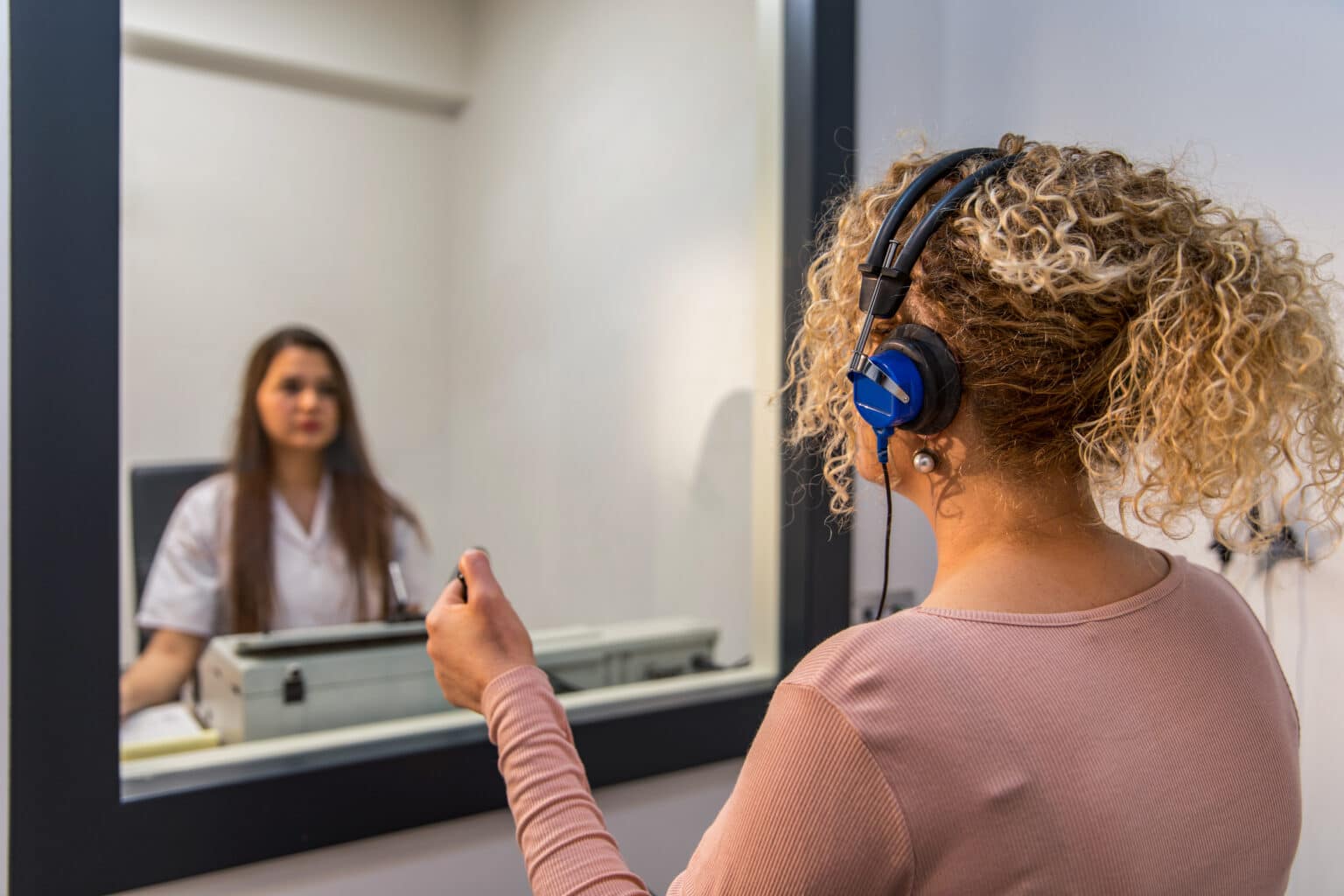When two medical conditions occur together, they are said to be comorbidities. One set of comorbidities that can exacerbate one another are anxiety and tinnitus. We review the connection below.
What Is Anxiety?

Anxiety is a blanket term under which many specific disorders fall, including agoraphobia, panic disorder, social anxiety, specific phobias and obsessive-compulsive disorder. However, when most people think of anxiety, they think of generalized anxiety disorder (GAD). Some of the symptoms of this disorder include:
- Feeling nervous, tense or restless
- Experiencing a sense of danger or doom
- Having an increased heart rate
- Breathing rapidly or hyperventilating
- Sweating excessively
- Trembling
- Trouble concentrating
- Problems sleeping
- Avoiding triggers
What Is Tinnitus?
Tinnitus describes a phantom sound in the ears that no one else can hear and that isn’t present in the environment. Usually, tinnitus is worse in quiet environments like Evansville Vanderburgh Public Library. Tinnitus sounds different for everybody, and it can range from mild and irritating to severe and debilitating. Tinnitus may present as:
- Ringing
- Roaring
- Hissing
- Whistling
- Buzzing
- Humming
- Chirping
- Sizzling.
The Link Between Anxiety & Tinnitus
According to one study, “A 45% lifetime prevalence of anxiety disorders is reported in tinnitus populations.” This means approximately 45% of individuals with chronic tinnitus present with anxiety symptoms as well.
Anxiety can cause physical changes in the body, such as increased blood pressure, which can trigger tinnitus. Conversely, experiencing tinnitus can make you feel out of control, which can lead to anxiety. When you experience one of these conditions, it can trigger the other, and ultimately lead to a vicious cycle that can feel impossible to get out of.
When to Get Help
If you experience any of the symptoms above and they’re interfering with your quality of life, it’s time to seek help.
A mental health professional can help you treat your anxiety with methods such as:
- Counseling
- Medication
- Exercise
- Stress management and relaxation techniques
- Getting enough sleep
- Eating well
An audiologist can come up with a tinnitus management plan, which may involve:
- Tinnitus retraining therapy
- Hearing aids
- Tinnitus maskers
- White noise machines
- Dietary changes
For more information or to schedule an appointment, call Hearing Healthcare Center, Inc. today.
[related-posts]